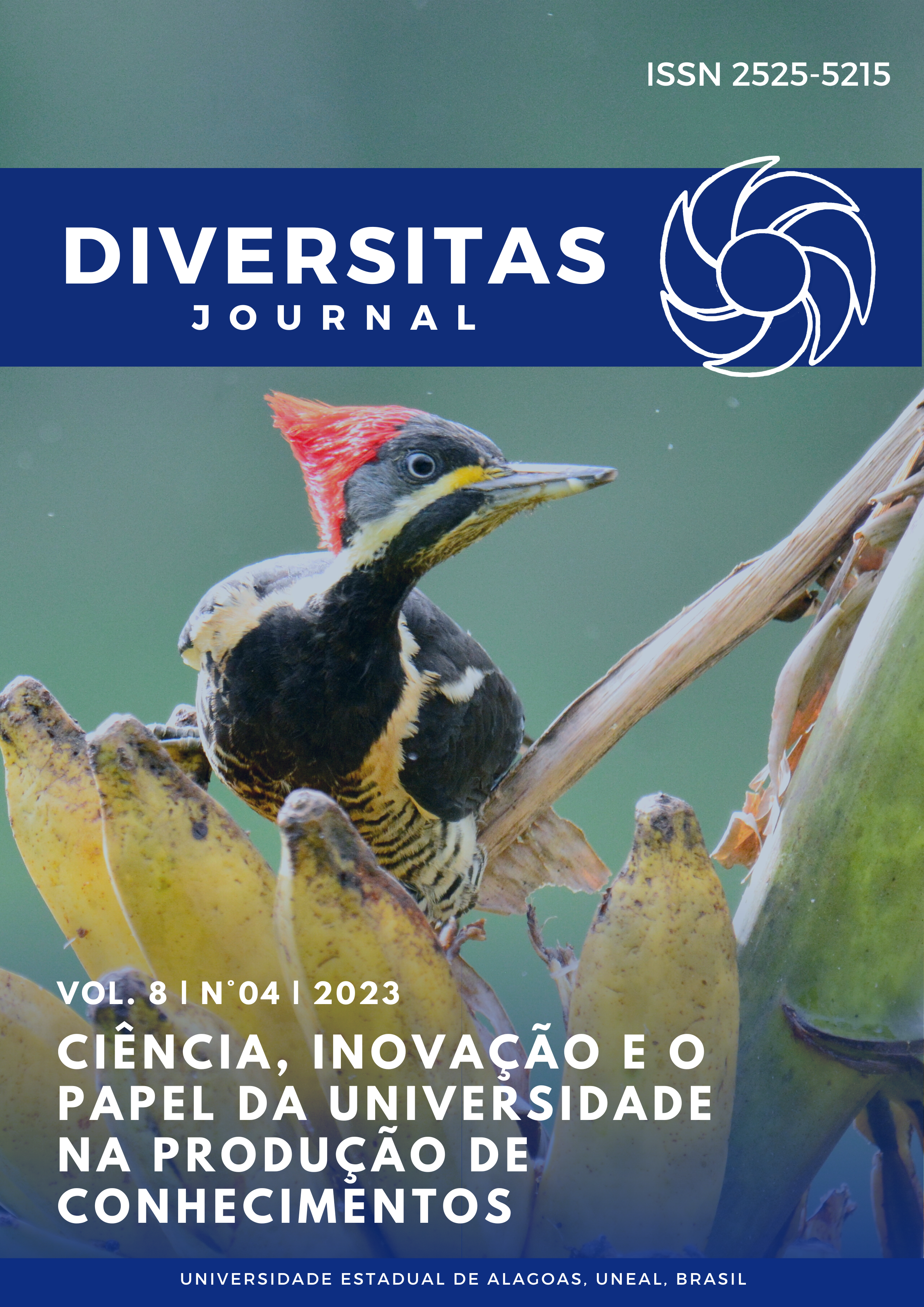Public policies of microcredit and the production of milk and cheese in Batalha-AL
DOI:
https://doi.org/10.48017/dj.v8i4.2811Keywords:
Microcredit Public Policies, Rural Producers, CrediAmigo, PRONAFAbstract
Microcredit policies are constituted as financial intermediation services aimed at less structured ventures with the possibility of accessing credit. It is highlighted that there is a positive impact on access to microcredit policies, given that we can contribute to the development of the activities of two agents present in the market. These policies are intended to promote local development through access to microcredit, thus contributing to the development of the local economy. The objective of this work is to study the contributions of public policies used in agricultural activities with a view to rural entrepreneurship in the municipality of Batalha/AL. The methodology used was a descriptive analysis, with data obtained through a questionnaire applied together with the milk and cheese producers of the municipality of Batalha/Alagoas. The study was applied during the year of 2018, analyzing the profiles of the agents (level of education, income, source of income), time of adjustment in the market, problems in the production process, technical assistance and which agents enable financing. Finally, we conclude the importance of the development of these policies for the development of the region.
Metrics
References
ABRAMOVAY, Ricardo; VEIGA, José Eli. Novas instituições para o desenvolvimento rural: o caso do Programa Nacional de Fortalecimento da Agricultura Familiar (PRONAF). Brasília, DF: IPEA, 1999. 41 p. (Texto para Discussão, 641).
BANCO MUNDIAL. The New Microfinance Handbook. A Financial Market System Perspective. Washington, D.C. 2013.
BARONE, F. M. et. al. Introdução ao microcrédito. Brasília: Conselho da Comunidade Solidária, 2002.
BARROS, Ricardo Paes de. Desigualdade de renda no Brasil. Brasília: IPEA, 2007.
BARROS, Ricardo Paes de, HENRIQUES, Ricardo e MENDONÇA, Rosane, Desigualdade e Pobreza no Brasil: retrato de uma estabilidade inaceitável. Revista Brasileira de Ciências Sociais, v. 15, nº 42, 2000.
CHAVES, S.S. Panorama do microcrédito no Brasil. Banco Central do Brasil, 2010.
DYE, Thomas D. Understanding Public Policy. Englewood Cliffs, N.J.: PrenticeHall. 1984.
EASTONE, D. A Framework for Political Analysis. Englewood Cliffs: Prentice Hall. 1965.
GIL, Antonio Carlos. Como elaborar projetos de pesquisa. São Paulo: Atlas, 1991.
GIL, Antonio Carlos. Métodos e técnicas de pesquisa social. São Paulo: Atlas, 1999.
LASWELLLaswell, H.D. Politics: Who Gets What, When, How. Cleveland, Meridian Books, 1936.
LYNNLynn, L. E. Designing Public Policy: A Casebook on the Role of Policy Analysis. Santa Monica, Calif.: Goodyear. 1980.
MALHOTRA, Naresh K. Pesquisa de Marketing: uma orientação aplicada. Tradução Editora Pearson. 4ª edição. Porto Alegre: ARTMED, 2006.
MONZONI NETO, Mário Preste. Impacto em Renda do Microcrédito: uma investigação empírica sobre a geração de renda do São Paulo Confia – Município de São Paulo. Tese doutorado – Escola de Administração da Fundação Getúlio Vargas, São Paulo, 2006.
PINSONNEAULT, A. e KRAEMER, K. Survey Research in Management Information Systems: An Assessement. Journal of MIS, 1993.
SEBRAE. Microcrédito: quando pouco dinheiro pode gerar milhões de benefícios. Revista Microcrédito. Dez/2008.
SILVA, Sandro Pereira. Políticas públicas, Agricultura familiar e Desenvolvimento territorial: Uma análise dos impactos Socioeconômicos do PRONAF no território médio Jequitinhonha – MG. Brasília, DF: IPEA, 2012. (Texto para Discussão 1693).
SIMON, Herbert. Comportamento Administrativo. Rio de Janeiro: USAID. 1957.
ZOUAIN, D. M.; BARONE, F. M. Excertos sobre política pública de acesso ao crédito como ferramenta de combate à pobreza e inclusão social: o microcrédito na era FHC. RAP – Revista de Administração Pública, Rio de Janeiro, v. 41, n. 2, p. 369-380, mar./abril 2007.
Downloads
Additional Files
Published
How to Cite
Issue
Section
License
Copyright (c) 2023 Maria Lucélia Felix Nunes, José Francisco Oliveira de Amorim

This work is licensed under a Creative Commons Attribution 4.0 International License.
The Diversitas Journal expresses that the articles are the sole responsibility of the Authors, who are familiar with Brazilian and international legislation.
Articles are peer-reviewed and care should be taken to warn of the possible incidence of plagiarism. However, plagiarism is an indisputable action by the authors.
The violation of copyright is a crime, provided for in article 184 of the Brazilian Penal Code: “Art. 184 Violating copyright and related rights: Penalty - detention, from 3 (three) months to 1 (one) year, or fine. § 1 If the violation consists of total or partial reproduction, for the purpose of direct or indirect profit, by any means or process, of intellectual work, interpretation, performance or phonogram, without the express authorization of the author, the performer, the producer , as the case may be, or whoever represents them: Penalty - imprisonment, from 2 (two) to 4 (four) years, and a fine. ”


















